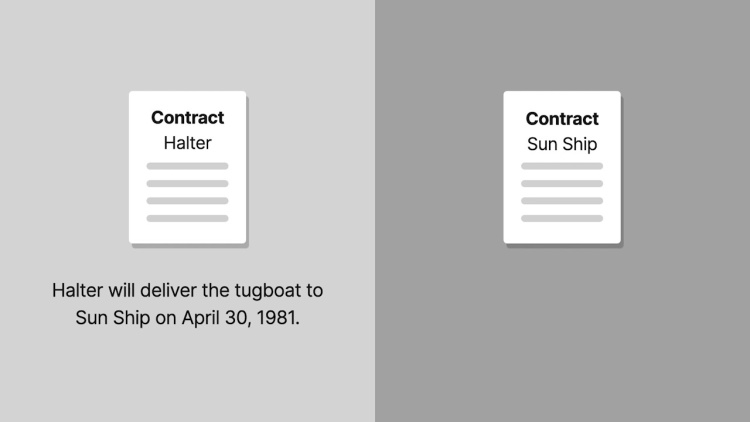California & Hawaiian Sugar Co. v. Sun Ship, Inc.
United States Court of Appeals for the Ninth Circuit
794 F.2d 1433 (1986)

- Written by Sean Carroll, JD
Facts
California & Hawaiian Sugar Co. (C & H) (plaintiff) hired Sun Ship, Inc. (defendant) to construct a barge and also hired Halter to build a tug. Under its contract with C & H, Sun Ship was to interconnect the barge and the tug because C & H planned to use the hybrid to transport its sugar. C & H’s contract with Halter provided that the tug was to be delivered to Sun Ship’s shipyard on April 30, 1981. C & H’s contract with Sun Ship provided that the barge be completed by June 30, 1981. This contract, negotiated by high-level managers and under advice of counsel, also provided that if the completed vessel was not delivered by June 30, 1981, Sun Ship would pay C & H “as per-day liquidated damages, and not as a penalty” $17,000, which was deemed in the contract to be “a reasonable measure of the damages.” Sun Ship was late with performance and finished constructing the barge on March 16, 1982. Halter was also late, finishing constructing the tug on July 15, 1982. The vessels were connected shortly thereafter. C & H brought suit against Sun Ship to collect liquidated damages based on the clause in the contract. The trial court ruled in C & H’s favor. Sun Ship appealed, arguing that because Halter had not delivered the tug by Sun Ship’s scheduled delivery date of the barge, the liquidated-damages clause amounted to a penalty. Specifically, Sun Ship claimed that without the completed tug, Sun Ship’s delivery of a completed barge on the delivery date would have been useless to C & H.
Rule of Law
Issue
Holding and Reasoning (Noonan, J.)
What to do next…
Here's why 911,000 law students have relied on our case briefs:
- Written by law professors and practitioners, not other law students. 47,100 briefs, keyed to 997 casebooks. Top-notch customer support.
- The right amount of information, includes the facts, issues, rule of law, holding and reasoning, and any concurrences and dissents.
- Access in your classes, works on your mobile and tablet. Massive library of related video lessons and high quality multiple-choice questions.
- Easy to use, uniform format for every case brief. Written in plain English, not in legalese. Our briefs summarize and simplify; they don’t just repeat the court’s language.





